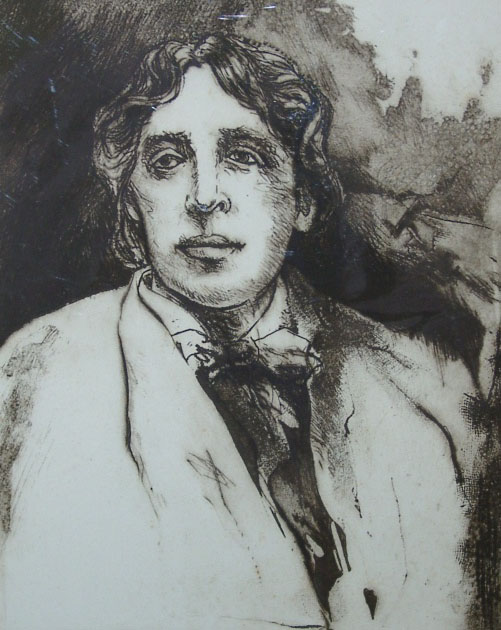2. His/her favorite season?
3. Flower?
4. Song?
5. Movie?
6. Animal?
[ALGERNON goes forward to meet them. Enter LADY BRACKNELL and
GWENDOLEN.]
LADY BRACKNELL. Good afternoon, dear Algernon, I hope you are
behaving very well.
ALGERNON. I'm feeling very well, Aunt Augusta.
LADY BRACKNELL. That's not quite the same thing. In fact the two
things rarely go together. [Sees JACK and bows to him with icy
coldness.]
ALGERNON. [To GWENDOLEN.] Dear me, you are smart!
GWENDOLEN. I am always smart! Am I not, Mr. Worthing?
JACK. You're quite perfect, Miss Fairfax.
GWENDOLEN. Oh! I hope I am not that. It would leave no room for
developments, and I intend to develop in many directions.
[GWENDOLEN and JACK sit down together in the corner.]
LADY BRACKNELL. I'm sorry if we are a little late, Algernon, but I
was obliged to call on dear Lady Harbury. I hadn't been there
since her poor husband's death. I never saw a woman so altered;
she looks quite twenty years younger. And now I'll have a cup of
tea, and one of those nice cucumber sandwiches you promised me.
ALGERNON. Certainly, Aunt Augusta. [Goes over to tea-table.]
LADY BRACKNELL. Won't you come and sit here, Gwendolen?
GWENDOLEN. Thanks, mamma, I'm quite comfortable where I am.
ALGERNON. [Picking up empty plate in horror.] Good heavens!
Lane! Why are there no cucumber sandwiches? I ordered them
specially.
LANE. [Gravely.] There were no cucumbers in the market this
morning, sir. I went down twice.
ALGERNON. No cucumbers!
LANE. No, sir. Not even for ready money.
ALGERNON. That will do, Lane, thank you.
LANE. Thank you, sir. [Goes out.]
ALGERNON. I am greatly distressed, Aunt Augusta, about there being
no cucumbers, not even for ready money.
LADY BRACKNELL. It really makes no matter, Algernon. I had some
crumpets with Lady Harbury, who seems to me to be living entirely
for pleasure now.
ALGERNON. I hear her hair has turned quite gold from grief.
LADY BRACKNELL. It certainly has changed its colour. From what
cause I, of course, cannot say. [ALGERNON crosses and hands tea.]
Thank you. I've quite a treat for you to-night, Algernon. I am
going to send you down with Mary Farquhar. She is such a nice
woman, and so attentive to her husband. It's delightful to watch
them.
ALGERNON. I am afraid, Aunt Augusta, I shall have to give up the
pleasure of dining with you to-night after all.
LADY BRACKNELL. [Frowning.] I hope not, Algernon. It would put
my table completely out. Your uncle would have to dine upstairs.
Fortunately he is accustomed to that.
ALGERNON. It is a great bore, and, I need hardly say, a terrible
disappointment to me, but the fact is I have just had a telegram to
say that my poor friend Bunbury is very ill again. [Exchanges
glances with JACK.] They seem to think I should be with him.
LADY BRACKNELL. It is very strange. This Mr. Bunbury seems to
suffer from curiously bad health.
ALGERNON. Yes; poor Bunbury is a dreadful invalid.
LADY BRACKNELL. Well, I must say, Algernon, that I think it is
high time that Mr. Bunbury made up his mind whether he was going to
live or to die. This shilly-shallying with the question is absurd.
Nor do I in any way approve of the modern sympathy with invalids.
I consider it morbid. Illness of any kind is hardly a thing to be
encouraged in others. Health is the primary duty of life. I am
always telling that to your poor uncle, but he never seems to take
much notice . . . as far as any improvement in his ailment goes. I
should be much obliged if you would ask Mr. Bunbury, from me, to be
kind enough not to have a relapse on Saturday, for I rely on you to
arrange my music for me. It is my last reception, and one wants
something that will encourage conversation, particularly at the end
of the season when every one has practically said whatever they had
to say, which, in most cases, was probably not much.
ALGERNON. I'll speak to Bunbury, Aunt Augusta, if he is still
conscious, and I think I can promise you he'll be all right by
Saturday. Of course the music is a great difficulty. You see, if
one plays good music, people don't listen, and if one plays bad
music people don't talk. But I'll ran over the programme I've
drawn out, if you will kindly come into the next room for a moment.
LADY BRACKNELL. Thank you, Algernon. It is very thoughtful of
you. [Rising, and following ALGERNON.] I'm sure the programme
will be delightful, after a few expurgations. French songs I
cannot possibly allow. People always seem to think that they are
improper, and either look shocked, which is vulgar, or laugh, which
is worse. But German sounds a thoroughly respectable language, and
indeed, I believe is so. Gwendolen, you will accompany me.
GWENDOLEN. Certainly, mamma.
[LADY BRACKNELL and ALGERNON go into the music-room, GWENDOLEN
remains behind.]
""Method of Physical Actions" (Stanislavsky) and Biomechanics (Meyerhold): compare




